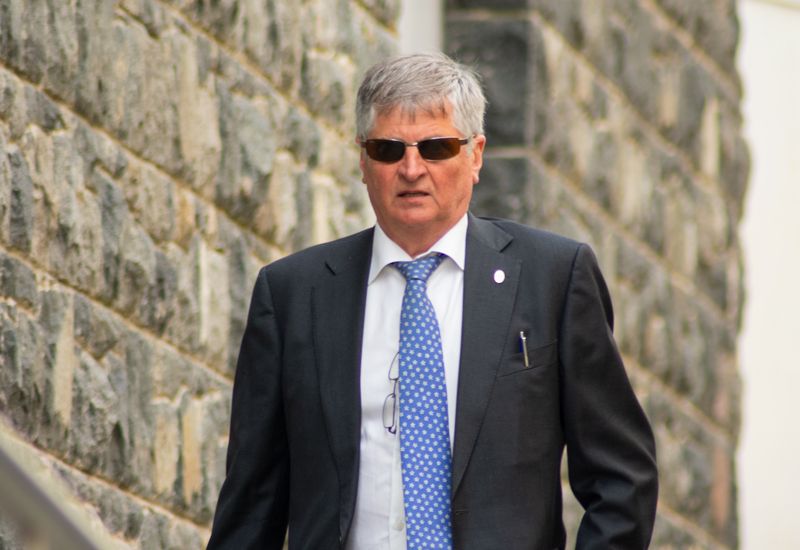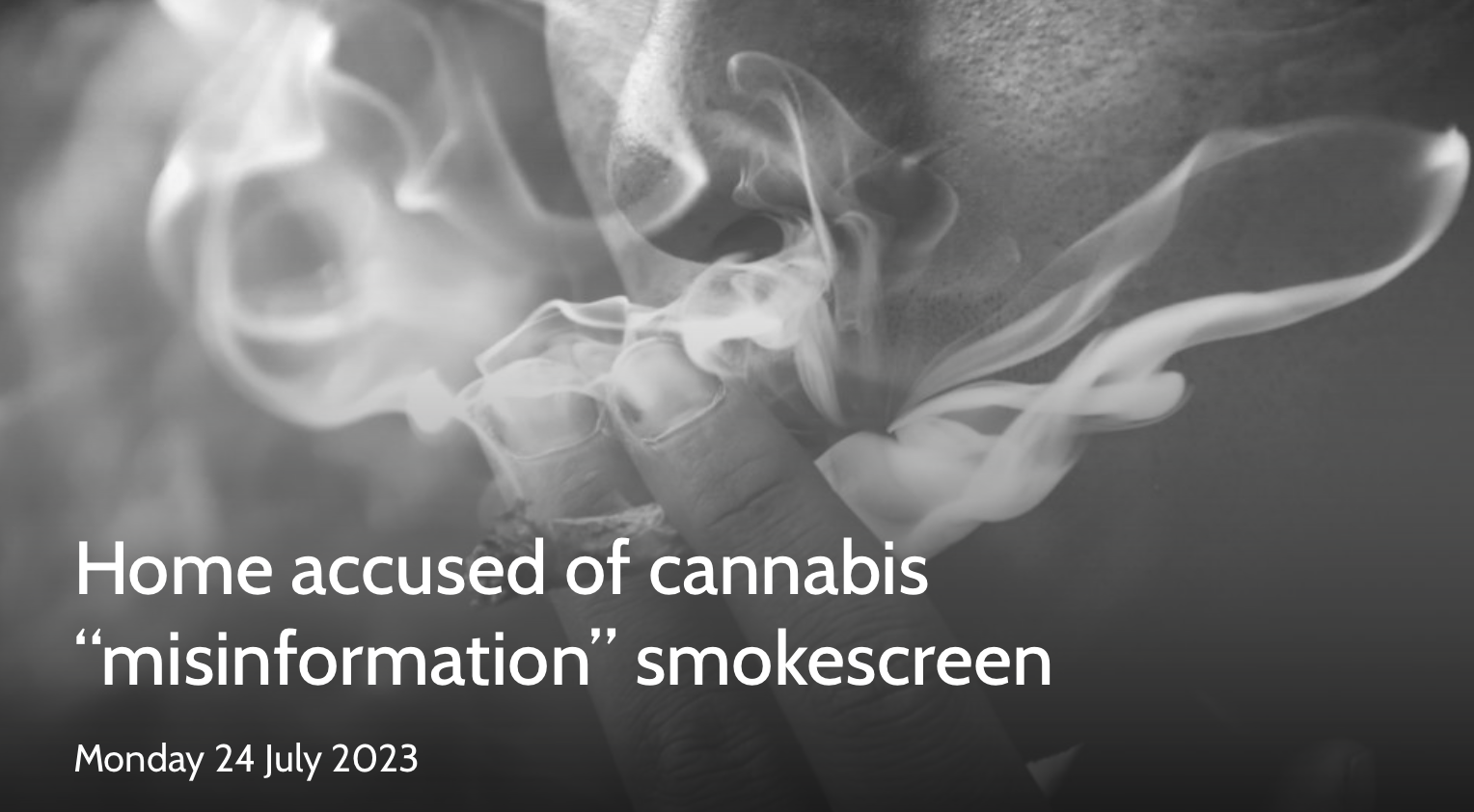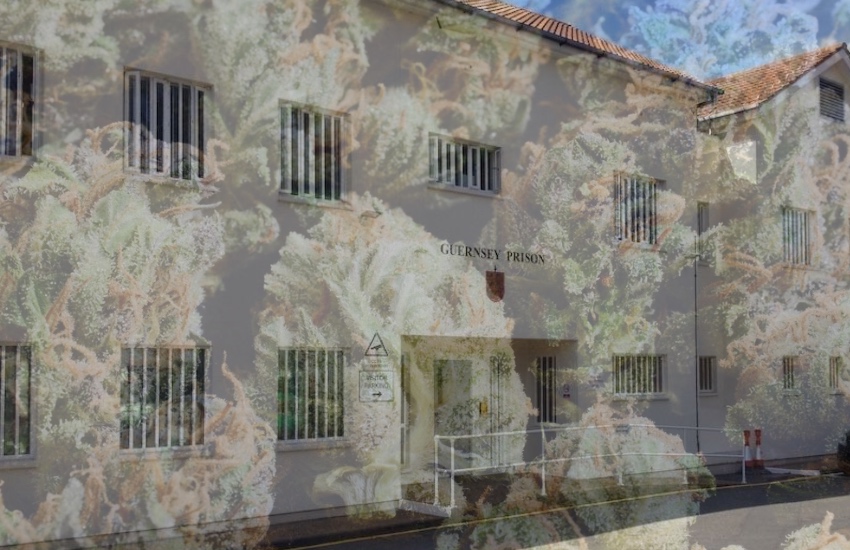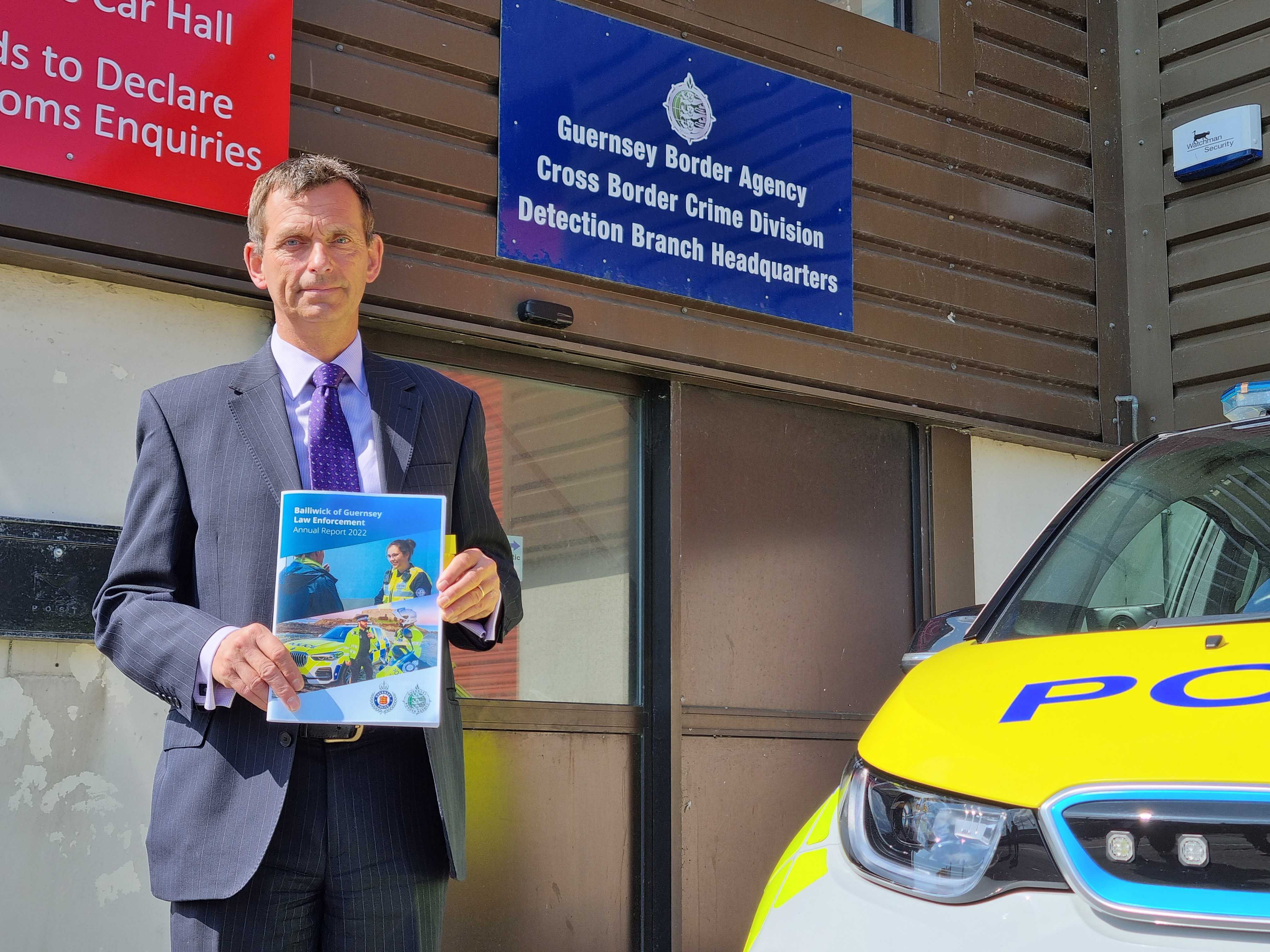


The cannabis debate continues to rage on, most recently hitting headlines after the President of Home Affairs replied to questions about non-punitive sentences, and sections of the industry came out supporting better regulation.
Deputy Rob Prow has since published a full letter on the topic, which you can read in full below:
In a recent letter to the States Assembly from the Channel Islands Cannabis Industry Association, cannabis and its legalisation has been lauded as one of the silver bullets we as the Assembly are looking for to assist our economy.
While the letter referenced my recent update statement this is a cross-committee matter and one which impacts on our community as a whole.
Similar to much of the discussion around cannabis, assertions are stated as fact, and little regard is given to the disadvantages this drug can cause in a community.

The cross-committee (Committee for Home Affairs and Committee for Health & Social Care) Non- Punitive Approaches (NPA) group was established as part of the Government Work Plan’s justice related action, the group considered ‘options for alternative and non-punitive approaches to the possession and use of small quantities of illegal drugs’. This group, which I was not a member of, but which fed back into Home Affairs and Health & Social Care, explored non-punitive (meaning ‘not inflicting, involving, or aiming at punishment’) approaches to health improvement, wellbeing and safety and examined whether people whose sole offence is possessing a small amount of drugs are incurring ‘punitive’ outcomes such as imprisonment, fines and long-standing criminal records. In my Update Statement in the States on the 20 July, I spoke about how non-punitive approaches are already available and being used in the community. This is the case. It is also the case that non- custodial sentences are also available.
The report compiled to complete the NPA work found explicitly that diversion away from the criminal justice system and into the health and social care system was already taking place. These pathways already exist for adults, young people, and children although stakeholder engagement found that there is scope for these existing pathways to be made more robust, universally available and better communicated. But these are not the only non-punitive approaches: the Police will also always consider a caution as and where it is appropriate, and young people are regularly referred to the Convenor, neither of which amount to a criminal record.

Pictured: Deputy Rob Prow has denied that Guernsey's prison is full of people with convictions for cannabis possession.
Equally, Guernsey has long been rife with the rumour that our prison is populated by people prosecuted for possession of small amounts of cannabis. This is plainly untrue. While people whose only offence is possession of a small amount of drugs do not generally face punitive outcomes such as imprisonment, punitive outcomes do occur in cases in which a more serious crime such as drug importation or supply occurs in conjunction with drug possession.
Now I’d like to come to the references to the Bailiwick Law Enforcement annual report for 2022. Without wishing to speak on behalf of the Head of Law Enforcement – or his colleagues at the Guernsey Border Agency, the claim that the amount of cannabis we seize at the borders is only either one tenth or one twentieth of the amount that is illegally imported into Guernsey does not warrant much of a response from me. What does, however, is the claim that if we took all of this cannabis and legalised and taxed it, the illegal market would fall away. If we were to apply as much tax as we would need to raise the amounts Mr Smith is talking about, I have no doubt the illegal market would remain in force, as people would be seeking cheaper alternatives.
Mr Smith also misrepresents the reality of why there were fluctuations in the cannabis statistics in the 2022 report. The Head of Law Enforcement made it very clear that this was largely due to the changes we saw coming out of the pandemic. It was reported the Guernsey Border Agency dealt with a spike in the number of postal importations during the lockdowns as people sought to import a personal supply, rather than buying from a dealer. When the lockdowns were lifted, this trend changed again and is now moving back to a fewer, but larger importations.
The legalisation of cannabis is not the silver bullet it is claimed to be. The view expressed by Mr Smith in the letter promotes the interest of a commercial company, and that is clear in its claims. Cannabis will not reduce harm, there are documented health risks associated with cannabis use, including risks to mental health this is a particular concern for young people – these issues are well documented in NHS guidelines. I also believe it will not reduce costs – because contrary to the belief of Mr Smith, we do not have shifts of police officers out searching for a man with a gram.

Pictured: The Head of Bailiwick Law Enforcement, Ruairi Hardy presented the annual report on behalf of Guernsey Border Agency and Guernsey Police earlier this month.
An independent non-industry assessment would be needed to identify potential tax benefits cannabis would bring. In the same vein, I would be interested in an independent review of the societal benefits.
We must also consider the constitutional impact on the potential legalisation of a drug which will remain illegal in the United Kingdom.
I would argue that the States have been in no way prevaricating on cannabis. We have been direct in our approach to looking at non-punitive measures. Health & Social Care were direct in enabling its prescription as a medicine. But we will also not rush into change which would have a huge impact on so many parts of our precious community.
Deputy Rob Prow, President of the Committee for Home Affairs
In response to Mr Paul Smith’s open letter dated 21 July 2023
Home accused of cannabis “misinformation” smokescreen
Review into non-punitive drug approaches amounts to very little